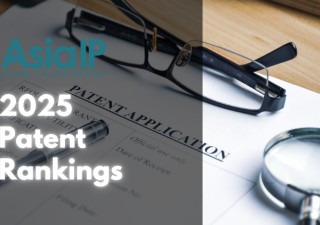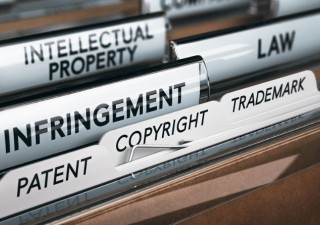Salient features of the High Court of Delhi Rules Governing Patent Suits, 2020
31 October 2020

Under Section 158 of the Indian Patents Act, 1970, which empowers the High Courts to make rules regarding the procedure in respect of the proceedings before it under the act, the Delhi High Court has recently drafted the proposed High Court of Delhi Rules Governing Patent Suits, 2020, which were published on October 9, 2020, for comments and suggestions by the members of the Bar.
The rules shall govern the procedure for adjudication of all patent suits and the procedure set out in these rules shall prevail over the Delhi High Court (Original Side) Rule 2018 in case of inconsistency. Some of the salient features of these draft rules are as follows:
Pleadings and documents in a patent infringement suit
- Specific and additional requirements have been laid down regarding the contents of the plaint containing, inter alia,the following:
- A brief description and background of the technology to which the suit relates along with the technical details of the suit patents, the invention and the plaintiff’s product;
- Ownership details of the patent;
- Details pertaining to the other patent applications filed, withdrawn or pending which relate to the suit patent;
- Details and a brief summary regarding international corresponding applications and patents and a copy of the broadest and the narrowest claim granted in other jurisdictions;
- A brief prosecution history of the patent;
- Any challenge to the patent and its outcome;
- Relevant facts to show validity of the suit patent;
- Details of the alleged infringing product/process and how it is infringing;
- Precise claims versus product (or process) chart; and
- A list of experts.
In addition to the documents that are usually filed in a patent suit, it is also required to file a summary of the technology as a note or a PowerPoint presentation. An expert report must be filed for infringement analysis. Further, a list of all corresponding patent applications/grants is to be provided in a tabulated format as provided in the rules. License agreements, royalty agreements and FRAND pricing (under sealed cover) may be filed, as per the pleadings.
- Similarly, the defendant’s response, i.e. the written statement, must be detailed and specific. If the defense of non-infringement is being taken, it must be supported by technical analysis and the defendant must disclose the process, product or technology being used by them. Grounds of challenge or other defenses being taken should also be raised. The defendant must disclose the details and exact description of the product or process alleged to be infringing along with the details of its sales.
- A counterclaim must be precise as to the grounds of challenge to the suit patent. An explanation as to which claims are being challenged by which prior art should be provided.
- In support of the pleadings in the written statement and the counterclaim, the defendant must file an expert report and laboratory analysis reports, if any. An analysis for non-infringement or invalidity should also be filed with the documents.
- Replication should initially summarize the plaintiff’s case, followed by a paragraph-by-paragrah reply to the written statement.
Interim orders
On the first day of the hearing, in addition to the usual interim order of injunction and inspection etc., the court may allow inspection of the manufacturing facilities of the defendant.
If the defendant is on caveat, upon receiving 48 hours’ notice, the defendant shall be ready with documents in case it wishes to oppose any interim relief, on the first day of hearing.
Admission/denial of documents
Extracts from the patent register, grant certificates, granted patent specification and cited prior art documents shall not be usually denied. The unjustifiable denial of documents may be burdened with costs.
Upon completion of admission or denial, both parties shall file their respective claim construction briefs, invalidity briefs and infringement briefs (usually not exceeding 10 pages).
Case management hearings and evidence
Prior to the stage of case-management hearing, the court may direct parties to file a technical primer to understand the basic technology of the patents.
Three case-management hearings have been proposed. The first one involves settlement of issues after reviewing the claim construction, invalidity and infringement briefs and direction to file list of witnesses and evidence. Issues that do not require evidence may be decided. The second case management hearing involves scheduling cross-examination once evidence has been filed, fixing timelines and recordal of evidence by the “hot-tubbing” technique in which expert witnesses are called to give evidence and are cross-examinied con currently. The third case management hearing involves review of the evidence recorded so far and may pass similar orders as the second case management hearing. Court may even decide on some issues.
Final hearing
A summary of pleadings and evidence, along with page numbers of the files, is to be provided before the final hearing. The court may seek assistance of one technical person from either side during the hearing.
General provisions
- At any stage, the court may constitute a confidentiality club for preservation of confidential information between the parties.
- The court may direct mediation in the matter without consent of the parties.
- The Delhi High Court shall draw up a panel of scientific advisors for assisting judges in deciding patent suits based on their expertise, to be reviewed periodically.
- Hot-tubbing (already introduced as per the earlier rules) may be allowed for recordal of evidence.
The need for the Delhi High Court Patent Rules, 2020 has been felt due to the complexities that are involved in patent suits and actions.
Justice Rajiv Sahai Endlaw, in orders dated February 2, 2017, in F.Hoffmann-La-Roche Ltd. & Anr. v. Dr. Reddys and Anr and F.Hoffmann-La-Roche Ltd. & Anr. v. Natco had raised similar concerns and even recommended that there is a requirement that rules be framed which may provide for the particulars to be contained in the pleadings in patent suits. A party litigant defending a claim for infringement of patent on the ground of the patent being liable to revoked on one of the grounds under Section 64 of the act would be required to plead particulars of that ground. Similarly, a written statement to such counterclaim would require the patentee to plead why the invention is inventive. Merely pleading that it is not obvious and/or it entails an inventive step would not constitute a defence. Even the issues framed should be clearly defined and not general. Justice Endlaw had also suggested that the expert opinion should be filed at the stage of filing documents.
On a perusal of the rules, it appears that the same may streamline the process involved in a patent suit and would not only make it easier for the litigants to explain, but also easier for the judges to understand the technical issues involved. Thus, further improving the quality of the judgments passed in patent suits. However, one may raise a concern that in urgent matters, which are sometimes filed overnight, it may be an undue burden to fulfil before approaching the court in a patent infringement suit.







